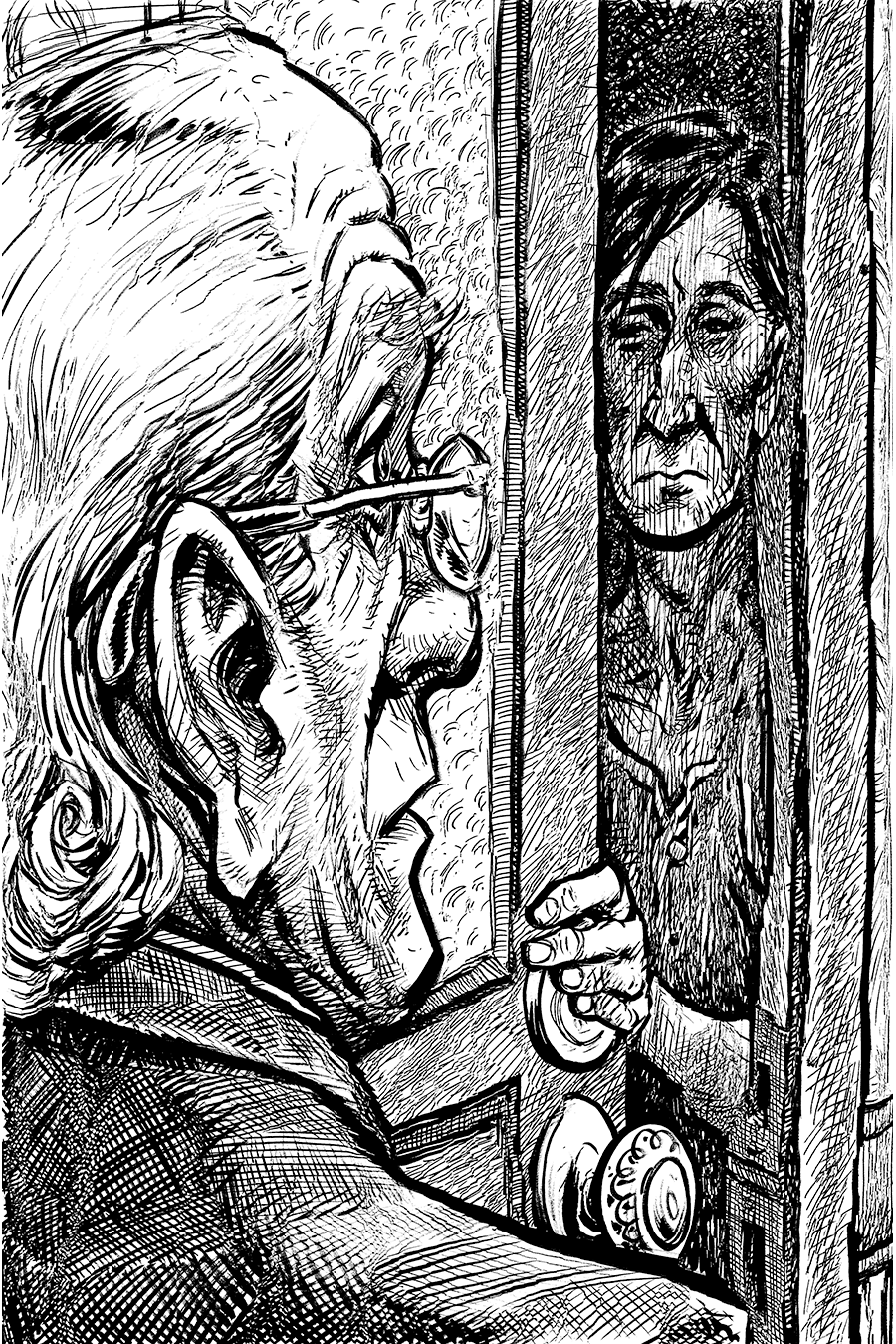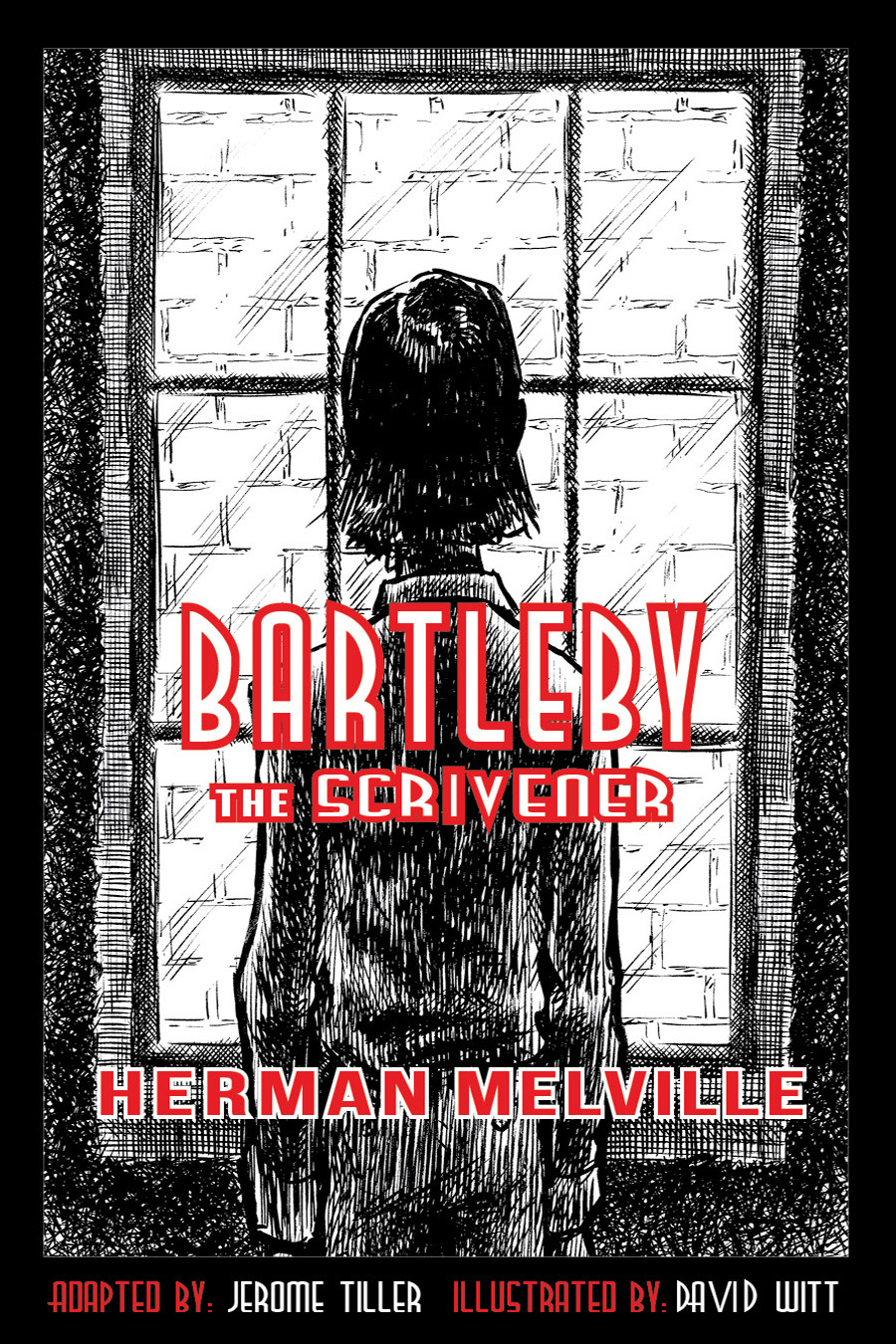Bartleby Puzzles Critics
by Jerome Tiller, in David Witt
, Herman Melville
, middle school literature
, illustrated classic literature
, illustrated classic stories
Unsurprisingly, when critics reach their conclusions about literary works, they do not always agree on the meaning of the most challenging literature, which would include Bartleby the Scrivener, a story that requires deeply penetrating discernment powers. For decades all critics worth their salt have wondered (and some have incessantly) what Herman Melville meant to say when he created Bartleby the Scrivener. And that includes avid readers (i.e; amateur critics) like me.
As an amateur critic, I do scant research beyond merely taking in what noted critics think, then take the easy road by merely selecting an interpretation that matches my worldview. I agree with those critics who have decided Bartleby’s refusal to comply with any of his employer’s requests was Melville’s negative reaction to the growing materialism of American culture, a phenomena that was developing at breakneck speed at the time he wrote the story.
To a large degree, this particular critique is persuasive due to the location of employment—Wall Street—and his employers field of legal work—managing people’s stocks and bonds. Wall Street was just becoming the center of financial activity in the United States at the time Melville wrote. He witnessed the emerging importance of money and its influence in American life. And, as an author who was struggling to make a living, he was also beaten down by the heartlessness of the financial system. If this ‘growing materialism’ interpretation is correct, Bartleby's stubborn refusal to do what is asked of him symbolizes heroic opposition to economic control.
This ‘Wall Street’ interpretation does not explain every aspect of Bartleby’s unbudgeable behavior, but it does seem to form the basis of it. However, what do I know? I’m just an amateur critic with a particular point of view. If you think you are up to it, why not give Bartleby the Scrivener a read, and then you try to figure him out. And hey, why not give our version of Bartleby the Scrivener a try when you do. If nothing else, you’ll come away totally impressed how David Witt’s pen & ink artwork enlivens it. Even if you conclude the story itself is unworthy of your analysis, you’ll want to see David’s illustrations. They are unbudgingly amazing!

To a large degree, this particular critique is persuasive due to the location of employment—Wall Street—and his employers field of legal work—managing people’s stocks and bonds. Wall Street was just becoming the center of financial activity in the United States at the time Melville wrote. He witnessed the emerging importance of money and its influence in American life. And, as an author who was struggling to make a living, he was also beaten down by the heartlessness of the financial system. If this ‘growing materialism’ interpretation is correct, Bartleby's stubborn refusal to do what is asked of him symbolizes heroic opposition to economic control.
This ‘Wall Street’ interpretation does not explain every aspect of Bartleby’s unbudgeable behavior, but it does seem to form the basis of it. However, what do I know? I’m just an amateur critic with a particular point of view. If you think you are up to it, why not give Bartleby the Scrivener a read, and then you try to figure him out. And hey, why not give our version of Bartleby the Scrivener a try when you do. If nothing else, you’ll come away totally impressed how David Witt’s pen & ink artwork enlivens it. Even if you conclude the story itself is unworthy of your analysis, you’ll want to see David’s illustrations. They are unbudgingly amazing!



